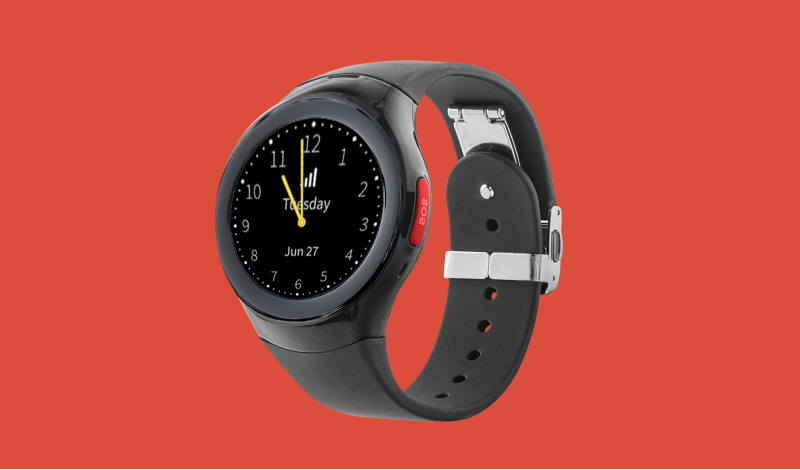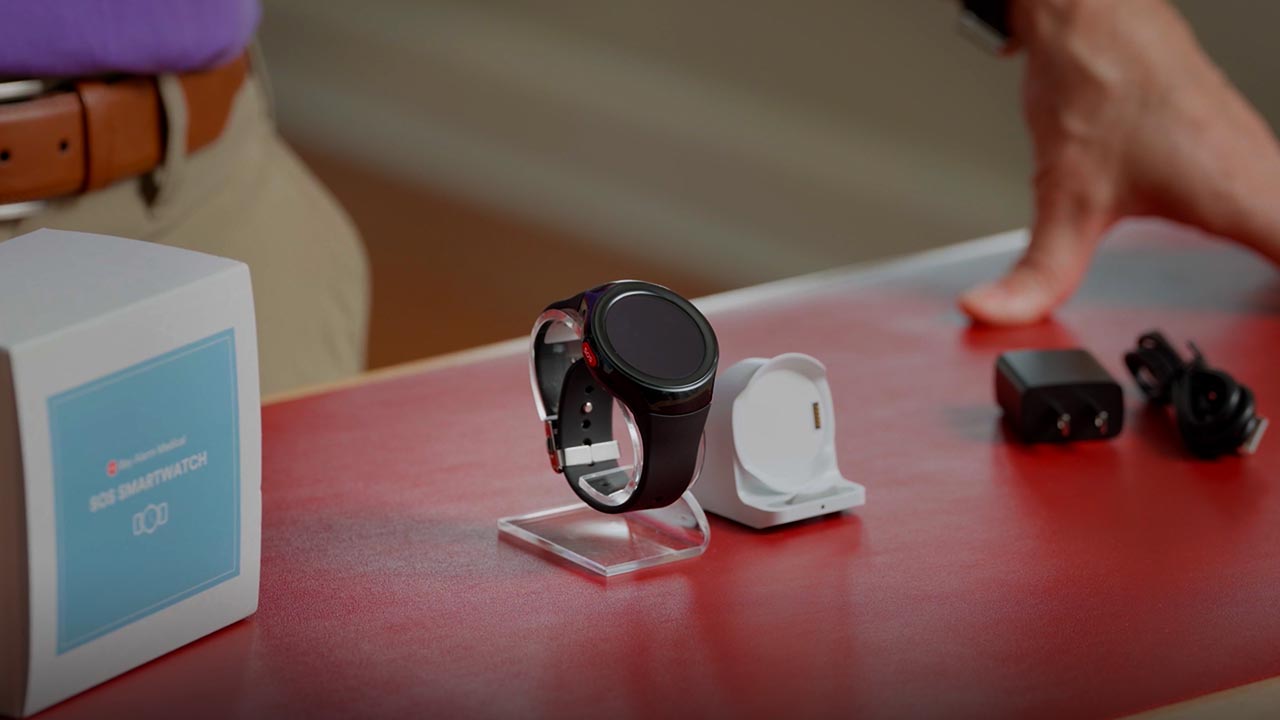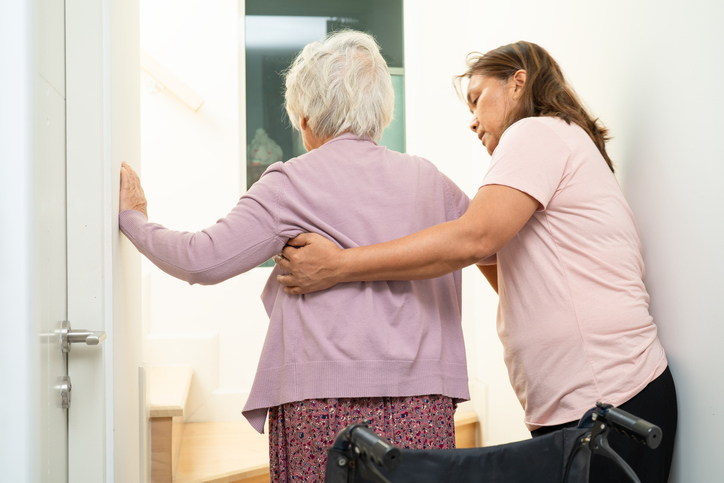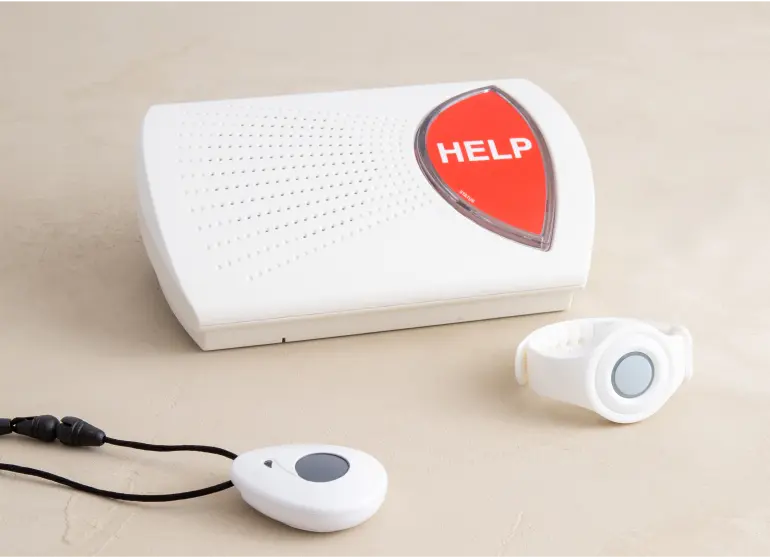Thanks to our smartphones, we can access almost anything simply by pulling it out of our purse or pocket. We can check the weather, our inbox, and a map to our next destination. However, you don’t always need your smartphone to stay connected to your messages and your family members. The right smartwatch can be an excellent way for your older loved one to stay safe, stay in the loop, and stay active.
Curious about which smartwatch might suit your loved one the best? We’ve got you covered with a few to consider.
Benefits of a Smartwatch
Whether your senior loved one is interested in technology gadgets or not, a smartwatch can be a wonderful way for them to dip their toe into smart tech or to continue experimenting with devices that make their life easier. Today’s smartwatches come in a variety of styles with features to appeal to older adults The right smartwatch can lead to any of these benefits:
- Increased awareness of physical activity, which can lead to increased activity to meet wellness goals
- Peace of mind knowing they can contact emergency assistance or family members if the need arises
- Ability to track and share health metrics with family members, physicians, or other members of their care team
- Increased awareness of sleep habits and how those affect sleep efficiency and consistency
- Ability to answer texts, emails, and answer the phone while out of the home
- Learning something new and applying it to daily life
For the Senior with a History of Falls
Sometimes, a smartwatch can be a better (and more discreet) way for a senior to enjoy peace of mind. Bay Alarm’s SOS Smartwatch has an easy-to-use SOS button that will automatically connect the user to operators who can track their location and send out first responders as needed.
The SOS Smartwatch tracks steps and has an option to add on fall-detection technology. In addition, the watch allows the user to communicate with caregivers or Bay Alarm operators thanks to two-way communication capabilities. It also doesn’t require a smartphone in order to work.
Cons: Requires overnight charging.
For the Tech-Savvy Senior
If your loved one is always ready to try out the next gadget, an Apple Watch is a great option. Each new series released features favorite capabilities, like step tracking and sleep monitoring, as well as new capabilities, like the Series 9 EKG option.
An Apple Watch can also measure activity and sleep, as well as connect with the user’s phone and computer so that the user can answer emails or pick up a call while out and about. In addition, the Apple Watch can lead the user in meditation to provide relaxation before sleep or during a stressful situation.
Cons: Can be difficult for a non-Apple user to integrate into their lifestyle, computer, and phone.
For the Active Senior
If your loved one is at home on the hiking trail or spends more time walking the neighborhood than sitting down on the couch watching television, a smartwatch that measures activity might be the ideal fit. Garmin offers a variety of smartwatch options for the athlete, no matter the age, but we especially love the vivoactive 5.
Users can track their sleep and recovery, as well as sync the watch to any of their favorite fitness apps. In addition, the watch can provide suggested workouts for wheelchair users. Did we mention the battery lasts for up to 11 days?
Cons: Software can be a bit difficult to learn, especially if you want to use all of the features available.
For the Senior Who Doesn’t Like Bells & Whistles
If your senior loved one would like a smartwatch that is easy to use and gives them the information they need, try the Fitbit Inspire 3. This easy-to-use smartwatch is affordable and compatible with Apple and Android systems.
The Fitbit Inspire 3 tells users the time as well as how many steps they have taken during the day. In addition, users can monitor stress, their blood oxygen levels, and their heart rate variability.
Cons: You must use it with your phone if you want the tracker to correctly track your location and progress.
For the Health Hacker
Not all smartwatches need to include a step tracker, or a watch for that matter. If you have a senior loved one who is fascinated with how their body works and how fitness, food, and stress can impact it, a Whoop band might be their next favorite obsession.
Whoop bands aren’t just for elite athletes looking to maximize their recovery. Seniors can use this band to track their stress levels, resting heart rate, and heart rate variability with the corresponding app. They can send any information the band tracks to their physician, their trainer, or other members of their healthcare team. Perhaps most interestingly, seniors can use the app’s journal feature to determine how their habits, like eating too much sugar or walking in their zone 2 heart rate zone, can increase markers of longevity.
Cons: no step counter, watch face, or fall detection technology.
For the Senior with a History of Falls
Sometimes, a smartwatch can be a better (and more discreet) way for a senior to enjoy peace of mind. Bay Alarm’s SOS Smartwatch has an easy-to-use SOS button that will automatically connect the user to operators who can track their location and send out first responders as needed.
The SOS Smartwatch tracks steps and has an option to add on fall-detection technology. In addition, the watch allows the user to communicate with caregivers or Bay Alarm operators thanks to two-way communication capabilities. It also doesn’t require a smartphone in order to work.
Cons: Requires overnight charging.
Does Medicare Cover Smartwatches?
While Medicare does not cover smartwatches, you might be able to get a discount or reimbursement for some of the cost of a smartwatch through your insurance’s preventative care benefits.















